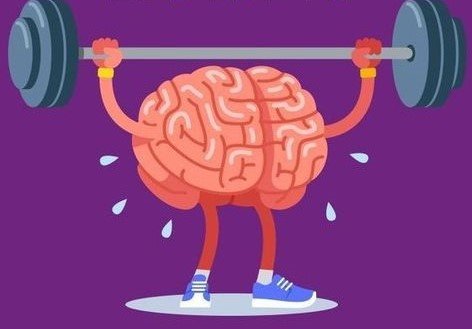Exercise is widely known for its positive effects on physical health, but did you know that it also has a profound impact on your brain? When you work out, your brain goes through a series of complex and beneficial processes that can enhance both your cognitive function and emotional well-being. Let’s dive into the fascinating changes that occur in your brain during physical activity.
1. Release of Neurotransmitters
One of the first things that happens when you work out is the release of key neurotransmitters—chemicals that help transmit signals in the brain. These include:
- Dopamine: Often referred to as the “feel-good” chemical, dopamine is linked to pleasure and reward. Exercise increases dopamine levels, which contributes to the feeling of satisfaction after a workout.
- Serotonin: Known for regulating mood, serotonin helps reduce feelings of anxiety and depression. Physical activity boosts serotonin levels, contributing to a sense of well-being and calm.
- Endorphins: These natural painkillers are released during exercise and can create a feeling of euphoria known as the “runner’s high.” They help reduce pain and improve mood, leading to reduced stress levels and a more positive outlook on life.
2. Increased Blood Flow to the Brain
When you exercise, your heart rate increases, leading to improved circulation. This enhanced blood flow helps deliver more oxygen and nutrients to your brain, which supports better cognitive function.
The increased circulation helps with:
- Enhanced memory: More blood flow allows the brain to create and strengthen neural connections, aiding in learning and memory retention.
- Sharper focus and concentration: A well-nourished brain is more alert, enabling better focus and productivity, even long after the workout is finished.
3. Neurogenesis (Growth of New Brain Cells)
Exercise stimulates the growth of new neurons, a process known as neurogenesis. The hippocampus, the area of the brain responsible for memory and learning, is especially active in this process. This leads to improved cognitive function, such as better memory, learning abilities, and problem-solving skills. Research suggests that regular exercise can even help prevent cognitive decline as we age, protecting against conditions like Alzheimer’s and dementia.
4. Reduced Stress and Anxiety
Physical activity has been shown to reduce the production of cortisol, a hormone that is released during times of stress. Lower cortisol levels mean less anxiety and a more relaxed state of mind. Exercise also increases the production of GABA (gamma-aminobutyric acid), an inhibitory neurotransmitter that promotes calmness and reduces overactive brain activity linked to stress.
5. Improved Sleep
Regular physical activity can help improve the quality of sleep. Exercise increases the production of adenosine, a chemical in the brain that promotes relaxation and sleepiness. As a result, you’re likely to fall asleep faster, sleep deeper, and wake up feeling more refreshed.
6. Boosted Mental Resilience
Exercise helps improve the brain’s ability to handle stress, making you more mentally resilient. Regular physical activity teaches your body and mind to adapt to challenges, which can translate to better emotional regulation and the ability to manage everyday stresses more effectively.
7. Improved Cognitive Performance
In addition to boosting memory and learning, exercise can improve overall cognitive performance. Research has shown that regular exercise improves tasks related to:
- Executive function: the ability to plan, organize, and make decisions.
- Attention: the ability to focus and avoid distractions.
- Problem-solving: improving critical thinking and creativity.
This means that exercise not only helps your body stay fit but also keeps your brain sharp and efficient.
8. Social Benefits
Group workouts or exercising with others can also have positive effects on the brain. Social interaction during physical activity releases oxytocin, the “bonding hormone,” which fosters a sense of connection and reduces feelings of loneliness. Engaging in group exercise has been shown to improve mood and encourage consistency in working out, which benefits long-term mental health.

Conclusion
Exercise is not just about building muscle or burning calories. The impact of physical activity on your brain is immense. From enhancing mood and reducing stress to boosting memory and cognitive performance, regular exercise can contribute to long-term brain health. The next time you hit the gym, remember that you’re not just improving your body—you’re also giving your brain a powerful workout!

